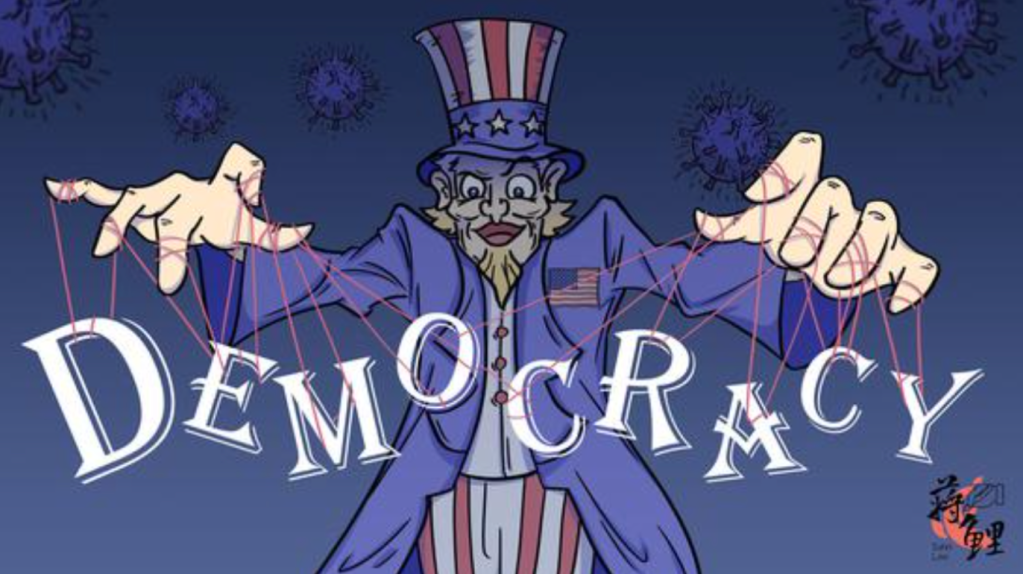How does reliance on technological advancement jeopardize our democracy?
By: Tia Reddy
What do Starlink and Facebook have in common? They are both United States-based companies that could single-handedly decide the outcome of our nation’s politics: techno-autocracies. The tech-savvy decision-makers of these companies are not elected policymakers, geopoliticians, or constitutional law experts who debate and weigh the pros and cons of every move they make in local and international politics. They are technology CEOs making technological decisions with significant political repercussions. While their intentions seem benevolent, the long-term effects slowly eat away at democracy. The consequence is a steady erosion of democracies and policy-based governmental decision-making. While the U.S. government and lawmakers are busy addressing easily visible issues affecting the public, the need for them to address how much power tech superpowers can wield is important and immediate. A lack of oversight and policies that regulate tech powers poses an existential danger to democracy.
Politics has become intertwined with technology as the demand for it has created a reliance on governments to use these companies to advance their nation’s well-being, giving power to the companies in many different ways over the years. However, technology and corporate powers, knowingly or unknowingly, misused their influence at the start of the Russian invasion of Ukraine. Elon Musk’s company Starlink has provided Ukraine internet services since Russia invaded Ukraine. Their aid is under no government directive agreement. Elon Musk claimed that the service was made available on purely humanitarian grounds and was widely commended by the general public. Since its availability, it has been a lifeline for the Ukrainian forces. However, the Russian military recently confirmed they had also used Starlink. Many news sources proliferate the U.S.’ role in budgeting the Ukraine war. A big portion of Ukraine’s success is attributed to the Starlink satellites. Elon Musk, in his interview with Walter Isaacson for his biography, revealed that he ordered the deactivation of a Starlink satellite service area near the Crimean coast in September 2022 to prevent Ukraine from launching attacks on Russia out of concern that this would result in drastic nuclear escalation. Musk, a billionaire tech CEO with no political experience, was making military decisions on behalf of the people of Ukraine. He assumed the power to control politics indirectly to make executive decisions on behalf of a democracy.
The increasing tech prowess is not confined to international relations. Within the United States, companies use the bipartisan split between parties to capitalize on the polarization. In 2014, Cambridge Analytica, an advertisement company, funded by a member of the republican campaign, accessed private data of over 50 million Facebook users to gather their psychological profiles. They created targeted ads to influence them in a “microtargeting” campaign so the user could be influenced to vote for Donald Trump, the Republican candidate at the time. By neglecting the implications of giving user’s data to advertising companies, Facebook put company influence over democracy and the country’s political affairs. This Britain-based company, through Facebook, played a role in deciding the fate of America’s democracy. This premise haunts Americans’ hopes for democracy as decisions will no longer be determined by who best represents the country, but rather by who pays technology companies to gather personal data so they can build the party’s voter base.
If technology companies could shape American minds by taking the data from users, and corporations have control over the fate of conflicts internationally, whose opinions are being represented in running the countries: the people’s or the corporate giant’s? In spite of corporation’s claims of neutrality that their actions are not a reflection of their political views, the situations bring forth the question of the fragile nature of democracy. Those with tech power or corporate leverage are now allowed to use it to change borders and elections. Starlink’s involvement with the recent Ukraine-Russia war and Facebook’s indirect involvement in U.S. elections highlights the significant techno-autocracy’s geopolitical scope in eroding democracies. At a time when democracy is walking on a tightrope, leaders of democracies need to urgently work on policies and guardrails so technology companies and their leaders do not wade into politics and undermine democracy’s existence.



